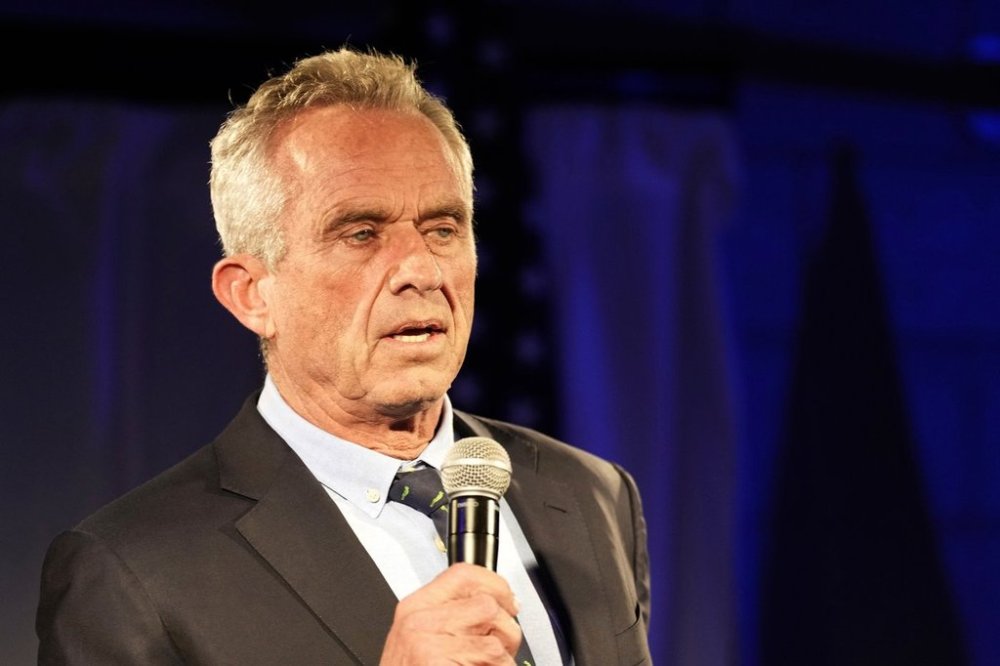Wisconsin’s governor signs Kennedy-inspired bill allowing candidates to withdraw from the ballot
Advertisement
Read this article for free:
or
Already have an account? Log in here »
To continue reading, please subscribe:
Monthly Digital Subscription
$0 for the first 4 weeks*
- Enjoy unlimited reading on winnipegfreepress.com
- Read the E-Edition, our digital replica newspaper
- Access News Break, our award-winning app
- Play interactive puzzles
*No charge for 4 weeks then price increases to the regular rate of $19.00 plus GST every four weeks. Offer available to new and qualified returning subscribers only. Cancel any time.
Monthly Digital Subscription
$4.75/week*
- Enjoy unlimited reading on winnipegfreepress.com
- Read the E-Edition, our digital replica newspaper
- Access News Break, our award-winning app
- Play interactive puzzles
*Billed as $19 plus GST every four weeks. Cancel any time.
To continue reading, please subscribe:
Add Free Press access to your Brandon Sun subscription for only an additional
$1 for the first 4 weeks*
*Your next subscription payment will increase by $1.00 and you will be charged $16.99 plus GST for four weeks. After four weeks, your payment will increase to $23.99 plus GST every four weeks.
Read unlimited articles for free today:
or
Already have an account? Log in here »
MADISON, Wis. (AP) — Wisconsin’s Democratic governor on Friday signed a bipartisan bill that will allow candidates to remove their names from the ballot, addressing an issue that arose last year when Robert F. Kennedy Jr. tried to get himself removed from the presidential ballot.
At the time, the only way a certified candidate’s name could be removed from the ballot in Wisconsin was if they died.
Kennedy, who ran for president in 2024 as an independent, wanted to withdraw his name from the ballots in Wisconsin and six other swing states after dropping his bid in late August and endorsing Republican President Donald Trump. Kennedy did not fight for removal in most states where the presidential race was not competitive.

Kennedy successfully removed his name from the ballot in the swing states of Pennsylvania, Georgia, North Carolina, Arizona and Nevada. He remained on the ballot in Michigan because courts there said he made his request too late, as well as in Wisconsin, where his removal was forbidden by state law.
Wisconsin’s law for removal is one of the most restrictive in the country, according to the National Conference of State Legislatures.
Gov. Tony Evers signed the measure without comment.
Under the new law, candidates for state and federal offices can rescind their names from the ballot. However, it will not apply to major party candidates because of the unique ways in which they are selected. Independent candidates for president, like Kennedy was, can withdraw.
To withdraw, a candidate must submit a sworn statement to the Wisconsin Elections Commission and pay a nominal fee.
Kennedy took his fight to get off the ballot in Wisconsin and Michigan to the U.S. Supreme Court, but his emergency request was rejected without comment. His request came after early voting had begun in both states.
In Wisconsin, Kennedy got fewer than 18,000 votes, or about 0.5% of the vote total. In Michigan, he got about 27,000 votes, also roughly 0.5% of the total. Trump won Wisconsin by about 29,000 votes and he won Michigan by about 80,000 votes.
Kennedy is serving as Trump’s secretary of the U.S. Department of Health and Human Services.

